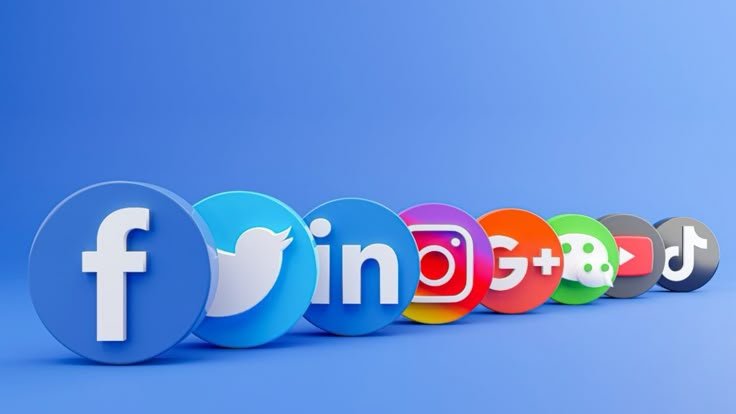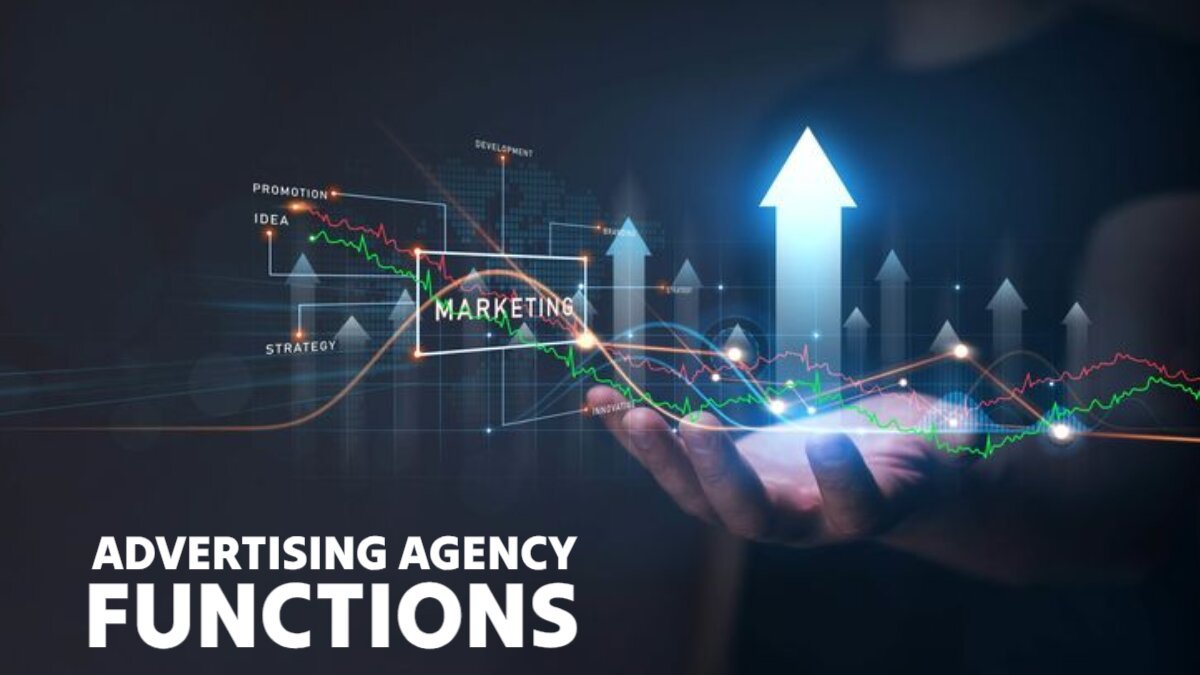Table of Contents
- The Top 20 Functions of Advertising Agency in 2025
- Top 20 Functions of Advertising Agency
- 1. Market Research & Analysis
- 2. Brand Strategy Development
- 3. Creative Concept & Design
- 4. Media Planning & Buying
- 5. Digital Advertising (PPC & Social Media Ads)
- 6. Content Creation & Copywriting
- 7. Search Engine Optimization (SEO)
- 8. Influencer Marketing
- 9. Video Production & Advertising
- 10. Social Media Management
- 11. Public Relations (PR) & Reputation Management
- 12. Conversion Rate Optimization (CRO)
- 13. Email Marketing Campaigns
- 14. Event Marketing & Experiential Advertising
- 15. Affiliate & Partnership Marketing
- 16. E-commerce Marketing
- 17. Mobile Marketing & App Promotion
- 18. Native Advertising & Sponsored Content
- 19. Performance Tracking & Data Analytics
- 20. Customer Relationship Management (CRM)
- Evolution of Advertising Agency
- Trends Shaping the Future of Advertising Agencies
The Top 20 Functions of Advertising Agency in 2025
In a constantly evolving digital landscape, the role of advertising agencies in shaping up the brand narratives and driving consumer engagement is more than important. As we look forward to 2025, the top 20 functions of advertising agencies will play a pivotal role in helping brands navigate through the competitive market dynamics with creativity and strategy.
With an emphasis on innovative campaigns, data-driven insights, and omnichannel strategies, advertising agencies in 2025 will redefine how brands connect with their target audience. From leveraging cutting-edge technologies to creating compelling content that resonates, advertising agencies will be the driving force behind the successful brand communication strategies.
Top 20 Functions of Advertising Agency
In 2025, the functions of an advertising agency consist of services designed to help brands navigate a complex marketplace. Here are the top 20 functions of an advertising agency;
1. Market Research & Analysis
Advertising agencies conduct extensive market research to understand consumer behavior, industry trends, and competitive landscapes. They gather data through surveys, focus groups, social media insights, and analytics tools to ensure campaigns are well-targeted. This helps in identifying customer target points, preferences, and buying patterns, which form the foundation of successful marketing strategies. By analyzing market dynamics, agencies create data-driven advertising campaigns that increase engagement and conversions. A well-researched strategy minimizes risks and maximizes ROI (Return on Investment) for businesses.
2. Brand Strategy Development
A strong brand strategy is essential for establishing a unique identity and staying competitive. Advertising agencies help businesses define their brand mission, vision, core values, and messaging tone to ensure consistency. They work on positioning strategies to differentiate brands from competitors and create a strong emotional connection with their audience. From logo design and color schemes to communication guidelines, agencies ensure that branding elements align across all marketing channels. A well-defined brand strategy enhances customer trust and loyalty, leading to long-term success.
3. Creative Concept & Design
The visual appeal of a brand plays a crucial role in grabbing attention and making a lasting impression. Advertising agencies have graphic designers, creative directors, and art specialists who design engaging visuals for campaigns. This includes logos, brochures, packaging, advertisements, and website layouts that reflect the brand’s identity. Creativity ensures that marketing materials stand out in a crowded marketplace, capturing potential customers’ interest. High-quality designs help create a strong brand recall and boost engagement rates across different platforms.
4. Media Planning & Buying
Choosing the right advertising channels is key to a successful campaign. Advertising agencies develop media strategies that determine where and when to place ads for maximum impact. They negotiate with TV networks, radio stations, newspapers, digital platforms, and billboard companies to secure cost-effective advertising slots. Agencies analyze audience demographics, peak engagement times, and campaign goals to ensure ads reach the right people. An effective media buying strategy optimizes ad spend and improves return on investment.
5. Digital Advertising (PPC & Social Media Ads)
In today’s digital world, paid advertising is an essential part of marketing. Agencies create and manage PPC (Pay-Per-Click) campaigns on platforms like Google Ads, Facebook, Instagram, LinkedIn, and YouTube. They use advanced audience targeting, keyword optimization, A/B testing, and budget management to maximize ad performance. Social media ads allow businesses to reach highly specific audiences based on demographics, interests, and online behavior. Effective digital advertising strategies ensure higher engagement, lead generation, and sales growth.
6. Content Creation & Copywriting
Content marketing plays a major role in building brand authority and trust. Agencies create SEO-friendly blog posts, ad copies, social media content, product descriptions, and email campaigns that captivate audiences. High-quality content improves search engine rankings, drives organic traffic, and keeps customers engaged with the brand. Agencies also craft compelling call-to-action (CTA) phrases to encourage customers to make purchases or sign up for services. Well-written content plays a key role in converting leads into loyal customers.
Read More: Commercial advertisement examples
7. Search Engine Optimization (SEO)
Without SEO, even the best content may not reach the right audience. Advertising agencies specialize in on-page SEO, technical SEO, and off-page link-building strategies to improve website rankings. They conduct keyword research, optimize meta descriptions, improve site speed, and fix broken links to enhance user experience. Higher search rankings increase website traffic, brand credibility, and customer engagement. Agencies also monitor Google algorithm updates to ensure continuous SEO success.
Read More: What is the importance of SEO in digital Marketing
8. Influencer Marketing
Influencer marketing has become one of the most powerful tools for brand promotion. Advertising agencies collaborate with social media influencers, bloggers, and YouTubers to promote products in an authentic and relatable way. Influencers help brands gain organic reach, credibility, and customer trust by sharing real experiences. Agencies identify the right influencers based on niche, audience engagement, and brand alignment. Well-executed influencer marketing campaigns result in higher brand awareness, lead generation, and customer conversions.
9. Video Production & Advertising
Video content is one of the most engaging formats in digital marketing. Agencies handle scriptwriting, filming, editing, and post-production to create high-quality commercials, explainer videos, product demonstrations, and social media reels. They optimize videos for different platforms, ensuring that they grab attention within the first few seconds. Video marketing increases brand recall, customer engagement, and conversion rates. Platforms like YouTube, TikTok, Instagram, and Facebook heavily prioritize video content in their algorithms.
10. Social Media Management
Maintaining an active social media presence is crucial for brand visibility. Agencies manage daily postings, engage with followers, handle queries, and monitor brand mentions. They create interactive content such as polls, quizzes, live videos, and trending hashtags to keep audiences engaged. Social media marketing builds brand personality and strengthens customer relationships. Agencies use data-driven insights to refine content strategies and maximize engagement.
Read More: Top 20 advantages and disadvantages of Social Media

11. Public Relations (PR) & Reputation Management
Advertising agencies also handle public relations (PR) efforts to build and maintain a positive brand image. They create press releases, manage media relations, and organize events to enhance brand credibility. If a brand faces negative publicity, agencies implement damage control strategies, such as social media crisis management and positive PR campaigns. Reputation management ensures that customer trust remains strong and the brand’s public image stays intact. Effective PR efforts help brands gain media coverage, industry recognition, and customer loyalty.
12. Conversion Rate Optimization (CRO)
Getting traffic to a website is only half the battle; converting visitors into customers is the real challenge. Agencies use A/B testing, heatmaps, landing page optimization, and persuasive CTAs to improve conversion rates. They analyze customer behavior, session recordings, and user interactions to identify areas of improvement. CRO ensures that every marketing dollar spent delivers maximum ROI by turning clicks into leads and sales. A well-optimized website boosts customer engagement, trust, and overall business revenue.
13. Email Marketing Campaigns
Email Marketing remains one of the most cost-effective digital marketing strategies with high ROI. Agencies design personalized email campaigns to nurture leads, retain customers, and drive sales. They create automated email sequences, promotional newsletters, and follow-up messages that keep customers engaged. Using segmentation and analytics, agencies send the right message to the right audience at the right time. A well-structured email marketing strategy enhances customer retention and lifetime value.
14. Event Marketing & Experiential Advertising
Experiential marketing is all about creating memorable brand interactions through live events, pop-ups, and immersive experiences. Advertising agencies plan and execute events that engage customers on a deeper level, such as product launches, brand activations, trade shows, and exhibitions. These events generate buzz, encourage social media sharing, and strengthen brand loyalty. By leveraging event marketing, brands create a personal connection with customers and increase word-of-mouth marketing.
15. Affiliate & Partnership Marketing
Advertising agencies help businesses grow by establishing strategic partnerships and affiliate marketing programs. They connect brands with publishers, bloggers, and industry influencers who promote their products for a commission. Affiliate marketing helps businesses tap into new audiences without heavy advertising costs. Agencies also manage tracking, payouts, and performance analysis to ensure high returns. A strong affiliate network increases brand reach and boosts sales through trusted recommendations.
16. E-commerce Marketing
For online stores, specialized e-commerce marketing strategies are essential for success. Agencies optimize product listings, manage paid promotions, and implement cart abandonment recovery campaigns to increase sales. They also create personalized customer journeys, upsell opportunities, and loyalty programs to maximize customer retention. By integrating platforms like Amazon, Shopify, WooCommerce, and Google Shopping, agencies help brands scale their online businesses. A strong e-commerce marketing strategy ensures higher revenue and brand growth.
17. Mobile Marketing & App Promotion
With more people using smartphones, mobile marketing is now a key focus area for advertising agencies. They create SMS campaigns, push notifications, and mobile-friendly ads to engage users on their devices. Agencies also optimize apps for the App Store (ASO) and run targeted in-app advertisements. Mobile marketing ensures that brands stay connected with customers on the go, increasing user retention and app downloads. Effective mobile strategies drive higher engagement and customer conversions.
18. Native Advertising & Sponsored Content
Native advertising blends seamlessly with editorial content, making ads feel more organic and engaging. Agencies create sponsored articles, product placements, and branded content partnerships with publishers. These ads perform well because they don’t interrupt the user experience like traditional display ads. Agencies carefully craft story-driven, value-based content that subtly promotes products while informing or entertaining the audience. Native advertising builds credibility and long-term customer trust.
19. Performance Tracking & Data Analytics
Agencies use advanced analytics tools like Google Analytics, Facebook Insights, and third-party tracking software to measure campaign performance. They track key performance indicators (KPIs) such as click-through rates (CTR), engagement, conversions, and return on ad spend (ROAS). Data-driven insights help agencies refine campaigns, optimize budgets, and improve targeting strategies. Performance tracking ensures that brands get measurable results and a high return on investment.
20. Customer Relationship Management (CRM)
A good advertising strategy focuses not just on acquiring customers but also on retaining them. Agencies help brands build loyalty programs, rewards systems, and personalized marketing efforts to keep customers engaged. By using CRM tools like HubSpot, Salesforce, and Zoho, they manage customer interactions and send personalized offers. A strong customer relationship strategy leads to higher lifetime value, repeat purchases, and brand advocacy.
Evolution of Advertising Agency
The evolution of advertising agencies has been a remarkable journey, driven by technological advancements, shifts in consumer behavior, and changes in the media landscape. Initially, advertising was a straightforward affair, primarily focused on print media where agencies acted as brokers between clients and newspapers. As the world progressed into the late 20th century, the rise of television introduced a new dimension, necessitating creative storytelling and the production of engaging visual content. Agencies began to expand their services, incorporating a mix of media planning and creative development to meet the diverse needs of their clients.
With the advent of the internet in the 1990s, advertising agencies faced yet another transformation. Digital marketing strategies emerged, prompting agencies to adapt quickly to an online environment. The proliferation of social media platforms opened new avenues for brand engagement, allowing for real-time interaction with consumers. Agencies began to specialize in online advertising, SEO, content marketing, and social media management, leading to a more integrated approach to advertising that emphasized the importance of data analytics and targeted messaging. This marked the beginning of a new era in advertising, where understanding consumer behavior became paramount.
As we approach 2025, the evolution of advertising agencies continues to accelerate, driven by advancements in artificial intelligence, machine learning, and big data. Agencies are now expected to integrate advanced technologies into their strategies, offering personalized experiences that resonate with consumers on a deeper level. The shift towards sustainability and ethical advertising practices is also influencing agency operations, as brands strive to align with consumer values. In this dynamic environment, advertising agencies must remain agile and innovative, continuously adapting to new trends and technologies to maintain their relevance and effectiveness in a competitive marketplace.
Importance of Advertising in 2025
As we look to 2025, the importance of advertising cannot be overstated. Advertising serves as the bridge between brands and consumers, facilitating communication and fostering relationships that drive engagement and loyalty. In a world inundated with information, effective advertising helps brands stand out, ensuring that their messages reach the right audience at the right time. With the rapid pace of technological advancement, advertising will play a crucial role in guiding consumers through their purchasing journey, helping them navigate choices that align with their values and preferences.
Moreover, the role of advertising in shaping brand perception will be more significant than ever. In a time when consumers are increasingly concerned about social issues, sustainability, and corporate responsibility, brands must communicate their values authentically to build trust. Advertising agencies will be instrumental in crafting narratives that highlight a brand’s commitment to these principles, ensuring that they resonate with socially-conscious consumers.
Additionally, the importance of data-driven insights in advertising will continue to grow. As brands seek to understand their audiences better, agencies will leverage advanced analytics tools to gather real-time data on consumer behavior, preferences, and engagement patterns. This data will inform campaign strategies, enabling brands to tailor their messaging and offerings to meet specific consumer needs. In this landscape, advertising will not only drive sales but also foster brand loyalty and advocacy, making it an essential component of any successful business strategy in 2025.

Trends Shaping the Future of Advertising Agencies
The advertising landscape is continuously evolving, and several key trends are shaping the future of advertising agencies in 2025. One significant trend is the rise of artificial intelligence (AI) and machine learning. These technologies are revolutionizing how agencies analyze consumer data, automate tasks, and optimize campaigns. By harnessing AI, agencies can gain deeper insights into consumer behavior, predict trends, and personalize marketing efforts at an unprecedented scale. This allows for more effective targeting and improved return on investment (ROI) for advertising campaigns.
Another trend is the increasing emphasis on sustainability and ethical advertising practices. As consumers become more socially conscious, brands are expected to align with their values and demonstrate a commitment to sustainability. Advertising agencies will play a crucial role in helping brands communicate their efforts authentically, ensuring that marketing messages reflect genuine practices rather than mere greenwashing. This shift will not only enhance brand reputation but will also resonate with consumers who prioritize ethical consumption.
Furthermore, the rise of digital and social media is transforming how brands engage with their audiences. As new platforms emerge and existing ones evolve, advertising agencies must stay ahead of the curve, adapting their strategies to leverage the latest trends in social media marketing, influencer partnerships, and user-generated content. The emphasis on community building and authentic engagement will shape the way brands communicate with their audiences, making it essential for agencies to foster genuine connections and create content that resonates in the fast-paced digital landscape.
Key Takeaways
As we look towards the future, the role of advertising agencies in shaping brand narratives and driving consumer engagement will only become more critical. The top functions of advertising agencies in 2025 will be underpinned by creativity, innovation, and a deep understanding of consumer behavior. Agencies that embrace technological advancements, prioritize ethical practices, and focus on delivering value to consumers will be well-positioned to thrive in this dynamic landscape.
In conclusion, the future of advertising agencies is bright, filled with opportunities for innovation and growth. As they adapt to shifting trends and consumer demands, advertising agencies will play a pivotal role in helping brands connect, engage, and thrive in an ever-evolving marketplace. The journey ahead will be marked by creativity, collaboration, and a commitment to making a positive impact, ensuring that advertising remains a powerful tool for brands in 2025 and beyond.
Share:


